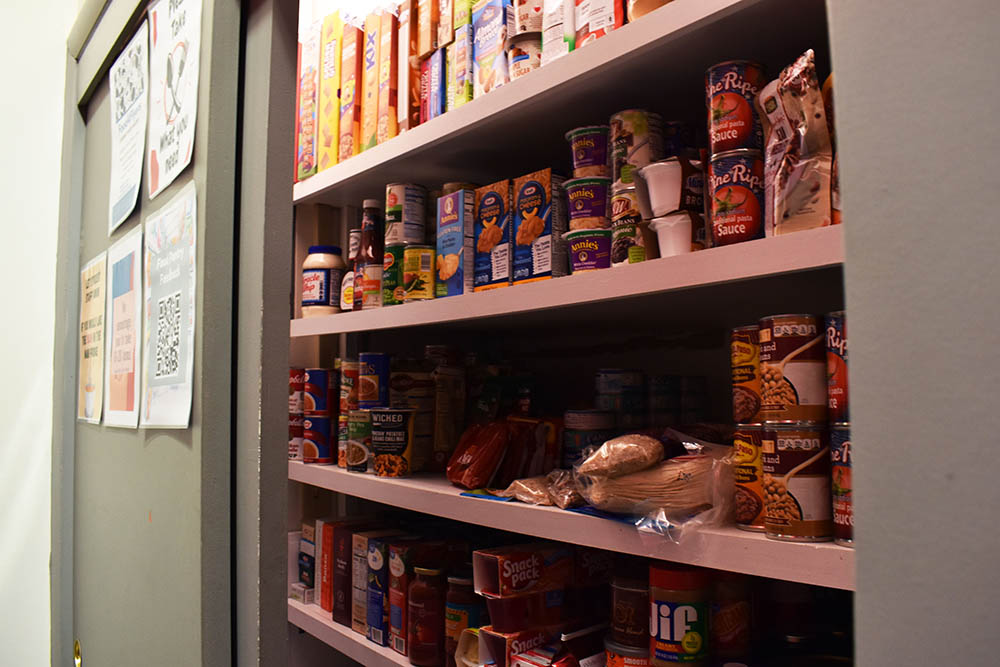Food4Flyers fights food insecurity
A diverse selection of food and personal products line the shelves at Food4Flyers, a new food pantry on campus, created to help UD students who might be experiencing food insecurity.
“The food insecurity issue is not just about ‘I need basic needs and food, and I need it now.’ It's about how we look at food, how we think about food, how we plan for food, how we budget for food,” said Christine Schramm, dean of students and associate vice president for student development.
A food security task force was formed by the dean of students office to address the needs of students on campus. After eight months of research and surveying, the office joined forces with the Brook Center to create the food pantry.

The Brook Center focuses on teaching students how to build and maintain relationships, and the food pantry is a big piece of that puzzle. Collaborating with the dean of students office educates students in and outside of the classroom, said Schramm.
Initial donations from TriHealth and the Cincinnati Freestore Foodbank got the pantry up and running, and it has been sustained primarily by monthly donations from UD faculty and staff, as well as UD student organizations. Departments and offices can sign up to sponsor the pantry and donate all collected goods at the end of each month.
“We have had an overwhelming number of offices who want to be official sponsors,” said Kristen Altenau Keen, assistant dean of students and director of the Brook Center. “We are booking people out to next January, I think. That has been the case since we launched in October.”
After launching the food pantry, the Brook Center recognized that most donations were staples in Americanized diets and lacked diversity in dietary restrictions and preferences. Matthew Allen, the Brook Center’s health equity education coordinator, worked to add Kosher, Hala, gluten-free, vegan, dairy-free and nut-free options. The pantry also offers feminine hygiene and personal hygiene products, all of which can be picked up in the Brook Center at ArtStreet. Feminine hygiene products were provided by the Femme Aid Collaborative, a local nonprofit organization led by UD student Ryann Mescher.
“Food insecurity isn’t something that affects just one segment of the population.”
“Food insecurity isn't something that affects just one segment of the population,” Allen said. “So making sure we are able to have offerings no matter an individual’s background and identity was something that was extremely important to us.”
While still in its pilot year, the pantry has seen success in its outreach to students, according to Keen. More than 175 students have visited the pantry since it launched late last fall, and the staff expects the number to increase as the year progresses. Looking forward, the team wants to adapt to what students need as time goes on and are working with community partners to bring a greater variety to the pantry’s shelves.
Photos by Meredith Robinson '23.